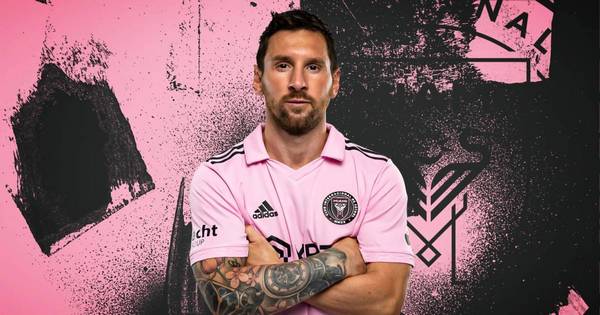Action Replay – Running into the sand
Top footballers nearing the end of their careers have various choices when their legs begin to go and their skills start to fade. The US is one popular destination, and Lionel Messi, for instance, joined Inter Miami in July from Paris St Germain, and will be earning at least $50m a year.
 But recently a new alternative has emerged, of players going to Saudi Arabia. At the end of last year, Cristiano Ronaldo signed for Al Nassr, at an annual salary of $200m; not bad for a 38-year-old. This August, Neymar left PSG for Al Hilal, for a transfer fee of €90m. There have been plenty of other examples too, with Saudi clubs having spent £753m on players from European sides this year, and the latter want guarantees that they will be paid on time.
But recently a new alternative has emerged, of players going to Saudi Arabia. At the end of last year, Cristiano Ronaldo signed for Al Nassr, at an annual salary of $200m; not bad for a 38-year-old. This August, Neymar left PSG for Al Hilal, for a transfer fee of €90m. There have been plenty of other examples too, with Saudi clubs having spent £753m on players from European sides this year, and the latter want guarantees that they will be paid on time.
One of the more controversial moves was that of Jordan Henderson from Liverpool to Al Ettifaq, which is managed by Steven Gerrard, who moved there in July after a rather mixed managerial career in the UK. While in Britain, Henderson frequently spoke out in support of the LGBT+ community, which made many people wonder why he had moved to a country where gay and lesbian sexual activity is illegal. His response was that the situation might change, and that ‘having someone with those views and values in Saudi Arabia is only a positive thing.’ Which might charitably be described as wishful thinking.
In 2022–3, the average attendance in the Saudi Pro League was just over nine thousand, though some clubs draw much larger crowds. Matches are broadcast on TV in various countries, though not by Sky or TNT. All this activity and spending has taken place since four top clubs were taken over by the Public Investment Fund, a ‘sovereign wealth fund’ (a kind of state-owned version of the likes of Blackrock). It’s part of Saudi Vision 2030, a project intended to increase various kinds of diversity in the country. In leisure terms, besides football, it also includes wrestling and live music concerts. It is run, of course, by the de facto ruler, Mohammed bin Salman.
The venture into football has created various kinds of controversy. The Fund owns Newcastle United, and there have been claims that when a Saudi club bought one Newcastle player, it inflated the price in order to help United’s finances. So the transfer market may be being disrupted, but then it’s never been, well, a level playing field.
Above all, the sporting side of Saudi Vision has been described by many as sportswashing, using sport to disguise nasty practices of one kind and another and promote the reputation of an individual or an organisation. And this time that goes even further, supposedly boosting the standing of a whole country, or at least its rulers.
PB
